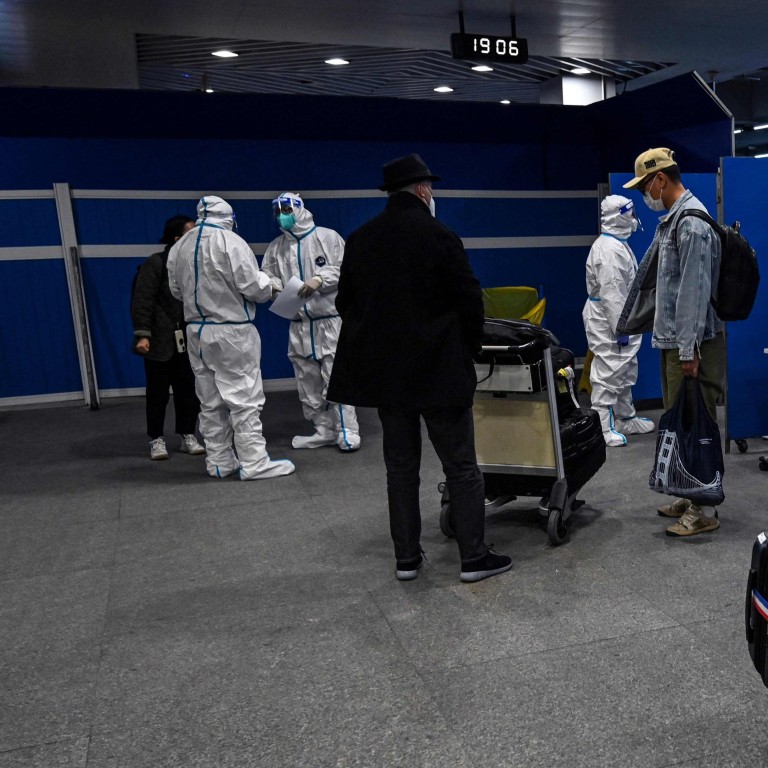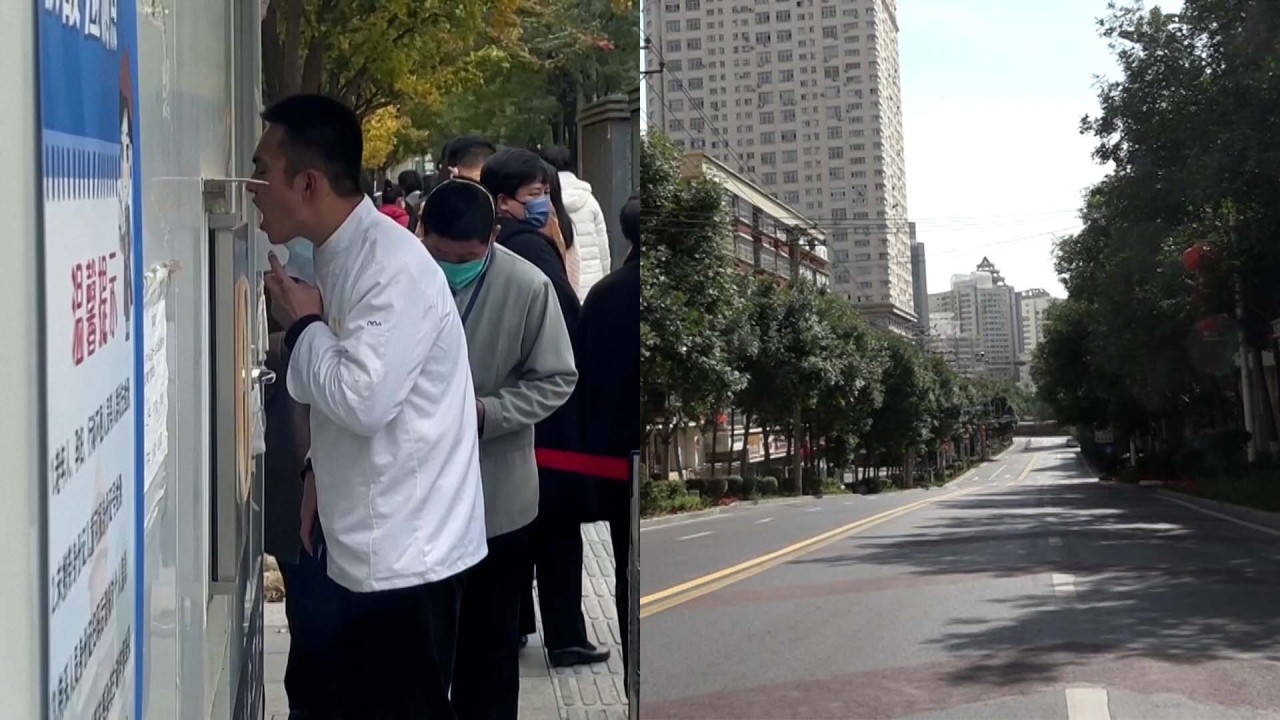
China’s easing of some coronavirus rules ‘encouraging’, but economic impact seen as limited
- China on Friday eased quarantine times for inbound travellers, along with several other of its hardline coronavirus containment rules
- But the changes are not a reversal of Beijing’s zero-Covid policy, and foreign business groups and economists say the impact will be limited
China’s decision to ease coronavirus containment measures has been welcomed by economists and foreign business groups, but they say the road to economic recovery is still bumpy with more relaxations needed.
Local authorities must also ensure the smooth flow of logistics and refrain from ordering firms that are crucial to overall supply chain stability to cease production during an outbreak.
The policies boost the confidence of investors as well the general public
“The new policies are encouraging. They help to clear policy uncertainty for next year, and likely help to raise market expectation for economic growth next year,” said Zhang Zhiwei, chief economist at Pinpoint Asset Management.
“The policies boost the confidence of investors as well the general public, which has been quite weak this year.
“These policies indicate the government intends to move toward reopening the economy, though the exact schedule is still not clear at this stage.”
The stock markets of both mainland China and Hong Kong rallied after the announcement, with yuan also strengthening against the US dollar.
The number of inbound flight bookings to China on online travel giant Ctrip doubled compared to the same period on Thursday, and the number of international flight searches increased by 200 per cent.
How much is China’s economy struggling and how much worse can it get?
“The stock market responded positively, reflecting the expectation of gradual relaxing of the Covid restrictions in the coming months,” said Dan Wang, chief economist at Hang Seng Bank China.
On Thursday, China’s seven-member Politburo Standing Committee – chaired by President Xi Jinping – decided that it will “firmly implement the general policy of dynamic zero [Covid]”.
Ding Shuang, chief Greater China economist at Standard Chartered Bank, said while the policy changes are positive signals, the effect on the real economy may lag behind markets.
“The market focuses on change of policy directions, so the current market pricing will reflect all the good things in the future at once,” Ding said.
For the economy, such gradual relaxation does not provide immediate stimulus to consumption and investment, he added.
“At present, the overall economic trend is still weak,” Ding said. “Of course the policy changes can boost confidence, but for the improvement of investment and consumption, it is necessary to gradually relax further in the future, and then the real effect will gradually appear.”
Harley Seyedin, president of the American Chamber of Commerce (AmCham) in South China, said the latest easing is an encouraging step for the international business community.
Many AmCham South China members have put big budget projects on hold because many experts have been unable to travel to China, Seyedin said.
“It is important to note that the expats who are in China are primarily operators of our existing facilities,” Seyedin said. “To build new factories, we need builders who are not in China. The new 20 measures will allow expatriate expert builders to enter China and help make these important investment projects a reality.”
China’s costly zero-Covid policy sees another region charge for tests
The British Chamber of Commerce in China said optimism within its business community about the changes are counterbalanced by concerns regarding implementation of the policies.
“Over the past six months, we have had reports of decreased centralised quarantine times and the like, however in reality it seems that there is often a considerable lag between the announcement of such relaxations and the implementation of these, as well as a noticeable gap between what is announced, and what is actually enforced,” the chamber said in a statement to the South China Morning Post.
“We hope to see continued opening up and the consistent implementation of these new restrictions so as to provide businesses with greater certainty, and assuage the risk of disruptions to businesses, their employees and their day-to-day operations as a result of China’s pandemic control.”
Joerg Wuttke, president of the European Union Chamber of Commerce in China, said the measures’ success will ultimately depend on how they are implemented.
“Currently it is easier to travel from Beijing to Frankfurt than from Shenyang to Beijing,” he said. “Given that China’s domestic Covid-19 restrictions can impact anyone – I myself have just had to quarantine at home for seven days for being in the wrong place at the wrong time – shaving days off the quarantine time for inbound international travellers alone is not that helpful.
“In this regard, a limitation of the new measures is that they focus on the tiny numbers of international travellers entering China, rather than the huge challenges that domestic travellers face.”
Economists from Nomura led by Lu Ting said positive impact from the latest easing is likely to be very limited, and zero-Covid will probably continue until at least March next year.
“Since the beginning of this year, China’s [zero-Covid strategy] has occasionally been eased on paper, but tightened in practice,” they said in a report last week.
“In our view, in the near term, fine-tuning of the [zero-Covid strategy] could be more than offset by local governments tightening their grip, as officials take hints from the 20th party congress meeting last month.”
Measures such as shortening the quarantine for overseas arrivals from 10 to eight days and removing “circuit breakers” for international flights may not significantly boost business travel to China, where travellers will still be subject to mandatory mass testing, contact tracing and potential lockdowns in China, they said.
Additional reporting by Orange Wang, Amanda Lee, He Huifeng and Frank Tang


